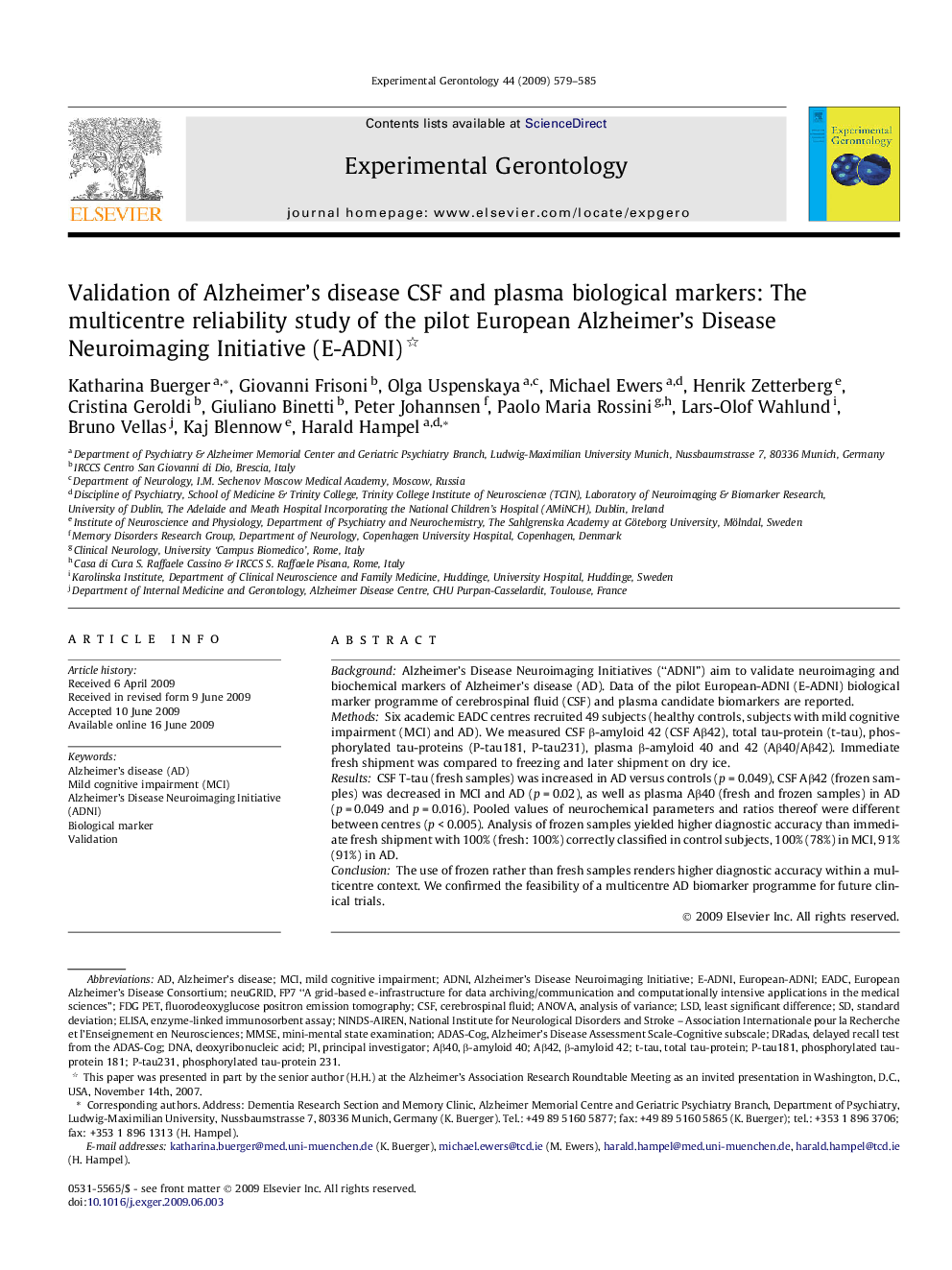| Article ID | Journal | Published Year | Pages | File Type |
|---|---|---|---|---|
| 1906603 | Experimental Gerontology | 2009 | 7 Pages |
BackgroundAlzheimer’s Disease Neuroimaging Initiatives (“ADNI”) aim to validate neuroimaging and biochemical markers of Alzheimer’s disease (AD). Data of the pilot European-ADNI (E-ADNI) biological marker programme of cerebrospinal fluid (CSF) and plasma candidate biomarkers are reported.MethodsSix academic EADC centres recruited 49 subjects (healthy controls, subjects with mild cognitive impairment (MCI) and AD). We measured CSF β-amyloid 42 (CSF Aβ42), total tau-protein (t-tau), phosphorylated tau-proteins (P-tau181, P-tau231), plasma β-amyloid 40 and 42 (Aβ40/Aβ42). Immediate fresh shipment was compared to freezing and later shipment on dry ice.ResultsCSF T-tau (fresh samples) was increased in AD versus controls (p = 0.049), CSF Aβ42 (frozen samples) was decreased in MCI and AD (p = 0.02), as well as plasma Aβ40 (fresh and frozen samples) in AD (p = 0.049 and p = 0.016). Pooled values of neurochemical parameters and ratios thereof were different between centres (p < 0.005). Analysis of frozen samples yielded higher diagnostic accuracy than immediate fresh shipment with 100% (fresh: 100%) correctly classified in control subjects, 100% (78%) in MCI, 91% (91%) in AD.ConclusionThe use of frozen rather than fresh samples renders higher diagnostic accuracy within a multicentre context. We confirmed the feasibility of a multicentre AD biomarker programme for future clinical trials.
